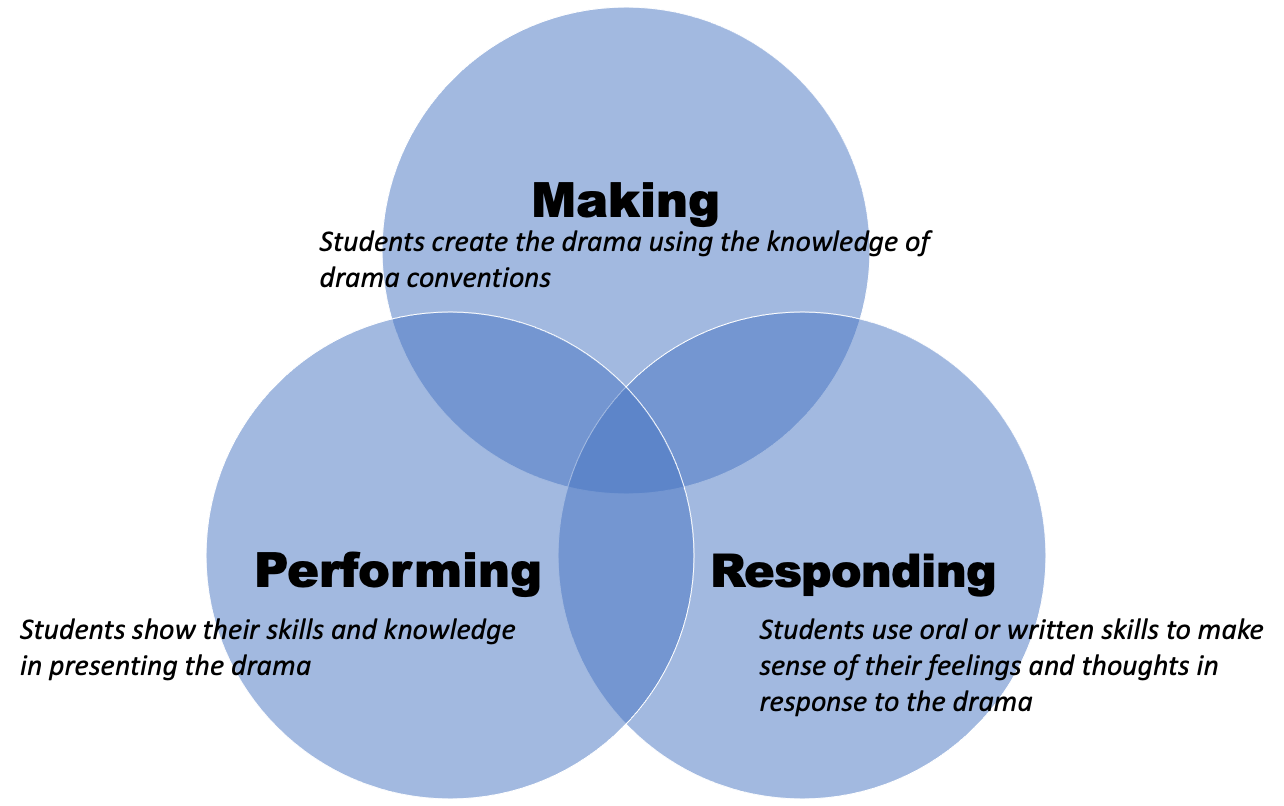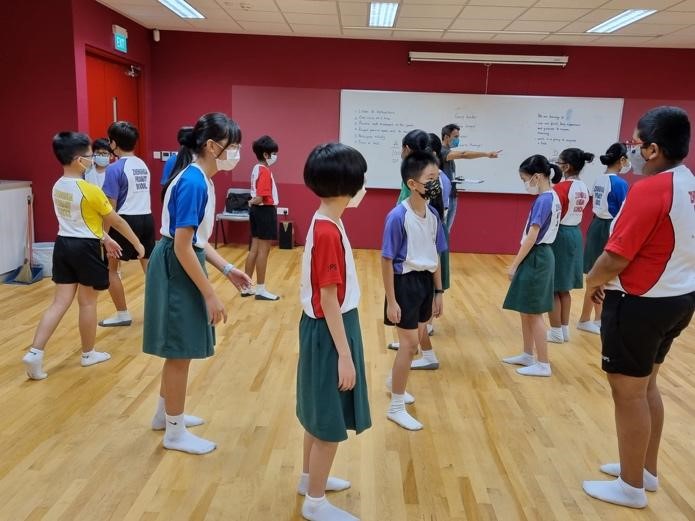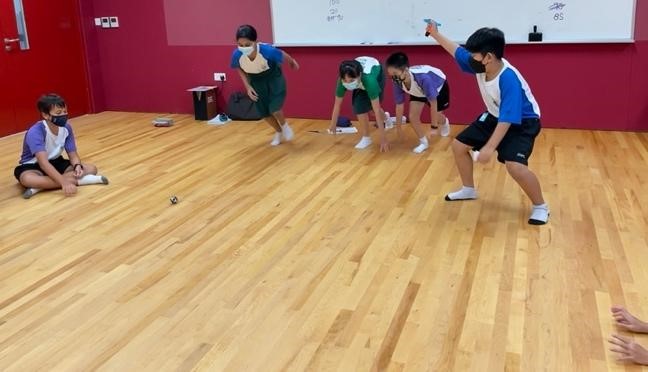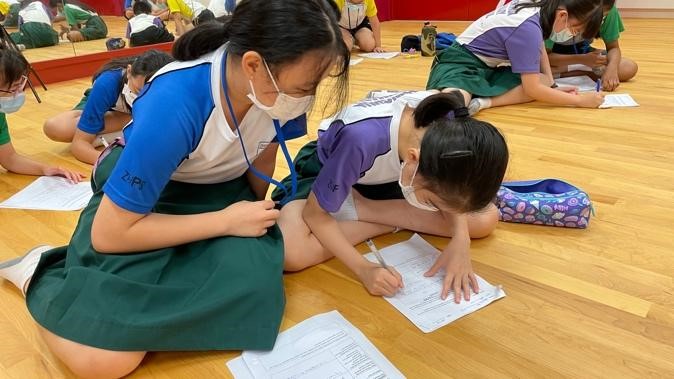Drama
Drama
In Zhenghua Primary School, Drama in Education uses drama as a teaching tool to engage students in fictional contexts, which allows them to discover and make sense of being in the world.
As a strategy or a pedagogical tool, drama is a creative process for learning. It is conducted in the classroom during curriculum time. It is one of the key features in our Applied Learning Programme (ALP) and in subjects such as English Language, Mother Tongue and Social Studies.
Drama encourages students to take on fictional characters and explore feelings, thoughts and emotions within those fictional settings. Students present their creativity and thinking through in-class presentations or performances.
While engaging students through dramatic play, learning of the curriculum becomes enhanced through the exploration and discovery of ideas and concepts during the process.
During the drama lessons, students are involved in the processes of Making, Performing and Responding.

Dramatic activities centre on the conventions of drama such as role-playing and improvisation. Other conventions used regularly as a way of working in the drama include hot seating, freeze frame and teacher-in-role.
 Freeze Frame is employed to allow students to feel comfortable with the use of their facial, body expression and gesture to express or convey meaning.
Freeze Frame is employed to allow students to feel comfortable with the use of their facial, body expression and gesture to express or convey meaning.
 Students present their scenes through role play to demonstrate their understanding of their task.
Students present their scenes through role play to demonstrate their understanding of their task.
 Students exchange ideas to discuss an issue presented to them and learn how to work together as a team.
Students exchange ideas to discuss an issue presented to them and learn how to work together as a team.
Drama in education frames the students’ learning of values and character. It provides them with an opportunity to develop an appreciation of the human condition and real-life situations. At the same time, drama helps students build confidence and empathy over time.
The values that drama in education bring to our students are evident as it benefits them in the following ways:
- It develops social and interaction skills.
- It develops speech and communication skills.
- It encourages teamwork.
- It promotes creativity and critical thinking.
- It develops confidence.
- It helps students to understand the world around them.
- It builds empathy.

